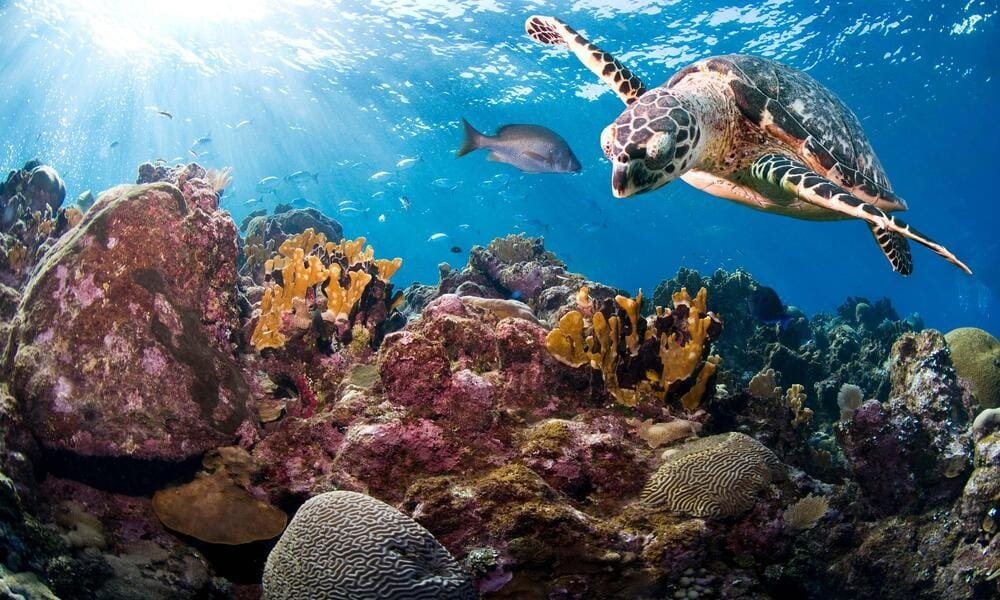Cozumel, Mexico — A citizen consultation scheduled for July 13 in the municipality of Cozumel will determine whether a fourth cruise ship pier will be constructed over the Villa Blanca reef. While framed as a participatory exercise, the move raises serious concerns as it subjects an issue governed by national and international environmental law to a public vote. Critics argue the consultation does not empower citizens but instead exploits them to justify violating environmental regulations.
A Project Threatening Biodiversity
The proposed project, spearheaded by the company Muelles del Caribe—owned by the Molina Casares family—in partnership with MSC Cruises, involves building a new tourist pier over a living marine ecosystem. Although the Villa Blanca reef lies outside the Cozumel Reefs National Park, it is part of the Mesoamerican Barrier Reef System, one of the planet’s most biodiverse regions.
The Environmental Impact Assessment (EIA) for the project deliberately omitted the presence of living marine species in the area, including corals, turtles, and endemic fish. Scientists, activists, and fishing cooperatives have condemned this omission, prompting Mexico’s Ministry of Environment and Natural Resources (SEMARNAT) to accept a legal challenge for review.
Despite this, the project continues to advance, now seeking legitimacy through the consultation. However, legal compliance is not a matter of public opinion—it is mandatory.
Legal and Ethical Violations
The right to a healthy environment, enshrined in Article 4 of Mexico’s Constitution, is not subject to a vote. Additionally, international treaties ratified by Mexico—including the Convention on Biological Diversity, the 2030 Agenda for Sustainable Development, and the 1992 Rio Declaration—require the state to prevent ecological harm, not to poll public opinion on its permissibility.
Principle 15 of the Rio Declaration explicitly states that a lack of scientific certainty should not postpone environmental protection measures. These legal frameworks obligate Mexico to safeguard ecosystems, not endanger them through referendums.
Social Neglect Amid Tourism Expansion
Beyond environmental concerns, Cozumel faces pressing urban challenges: unpaved streets, collapsed drainage systems, water shortages, crime, drug trafficking, domestic violence, and rising insecurity. Entire neighborhoods remain neglected while public funds prioritize tourism infrastructure over essential services.
The question arises: What is the purpose of building another pier when the most urgent needs—urban dignity and basic services—remain unaddressed?
A Call for Responsible Legislation
Mexico urgently requires a General Law on Culture of Peace with an environmental focus—one that is binding and cross-cutting. Such legislation should recognize that peace cannot coexist with environmental destruction, social marginalization, or systemic impunity. This need is particularly acute in Quintana Roo, where unchecked tourism and urban growth have often come at the expense of ecosystems.
A law of this nature would not only protect the environment but also provide institutional tools for education, budgeting, and community engagement to ensure harmony with nature.
The Economic Reality of Cruise Tourism
Cruise tourism generates limited economic benefits. A typical cruise passenger spends between $100 and $150 during a brief stopover, often at businesses unaffiliated with local communities. In contrast, long-stay tourism—where visitors sleep, eat, explore, and engage—provides tangible benefits to local guides, merchants, transport providers, and cooperatives.
Cozumel’s true wealth lies not in its piers but in its marine ecosystems: its corals, turtles, and crystal-clear waters. This natural heritage must be preserved.
A Final Plea
Corals do not vote. Turtles cannot attend consultations. Marine life does not fill out surveys. Yet they exist—and they depend on human conscience.
Informed citizens, responsible professionals, and public servants must raise their voices. Environmental law is not up for debate—it must be enforced. Life is not subject to consultation—it must be defended.
Discover more from Riviera Maya News & Events
Subscribe to get the latest posts sent to your email.
